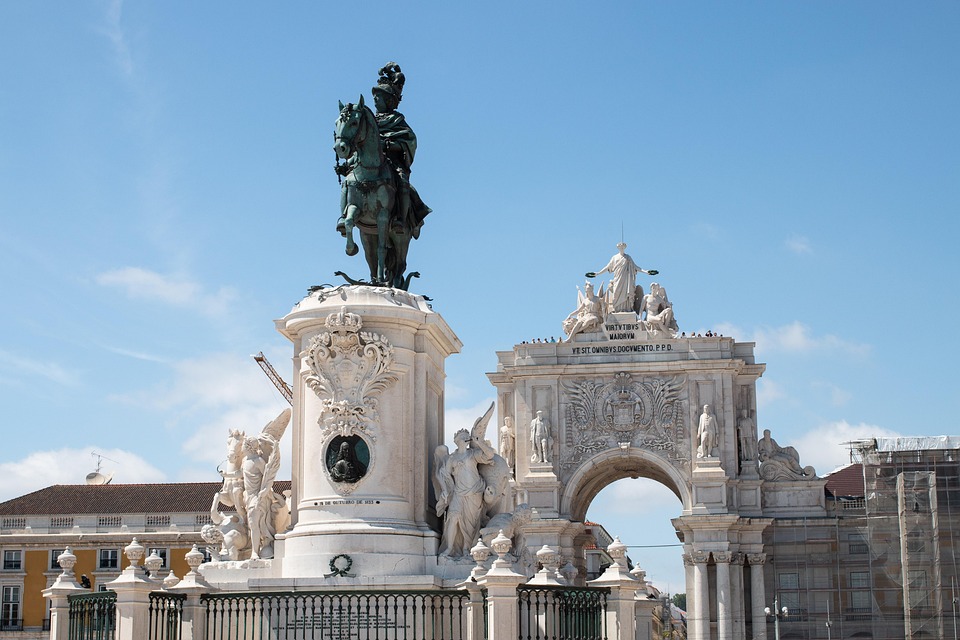Beneath the Surface: Unraveling the Causes of the Kosovo War
The Kosovo War, fought between 1998 and 1999, was a significant conflict that not only reshaped the Balkans but also had far-reaching implications for international relations and humanitarian interventions in the post-Cold War era. This article delves into the intricate factors that led to the war, providing a comprehensive understanding of the underlying causes, key players, and international responses.
Historical Context
The Pre-War Era
To fully comprehend the Kosovo War, one must explore the historical backdrop of the region. Kosovo, a small province in the heart of the Balkans, has a complex and often contentious history. It was the birthplace of the medieval Serbian state and holds immense cultural significance for Serbs. However, throughout the 20th century, Kosovo’s demographic landscape underwent significant changes, with a rising Albanian majority that emerged from the post-World War II era.
The post-World War II Yugoslav federation, led by Josip Broz Tito, managed to suppress ethnic tensions through policies promoting brotherhood and unity. However, following Tito’s death in 1980 and the subsequent disintegration of Yugoslavia in the 1990s, these tensions resurfaced with a vengeance. The wars that plagued the former Yugoslavia in the early 1990s set the stage for the emergence of nationalist sentiments, particularly in Serbia and among the Kosovo Albanians.
Rise of Nationalism
The rise of nationalism was a critical factor leading to the Kosovo War. In Serbia, Slobodan Milošević emerged as a prominent nationalist leader, capitalizing on the discontent among Serbs. His policies and rhetoric stoked fears of losing territory and influence to ethnic Albanians, which further exacerbated tensions in Kosovo. Conversely, ethnic Albanians in Kosovo grew more insistent on their rights and autonomy, especially as they faced increasing repression from Serbian authorities.
By the mid-1990s, the situation in Kosovo deteriorated rapidly. Peaceful protests advocating for greater rights were often met with violent crackdowns. The Kosovo Liberation Army (KLA), initially formed as a resistance movement, began to gain traction among the Kosovar Albanians, leading to armed conflict with Serbian security forces.
Key Causes of the Kosovo War
Ethnic Tensions
At the heart of the Kosovo War were deep-seated ethnic tensions between Serbs and ethnic Albanians. These tensions were historical, rooted in centuries of conflict and territorial disputes. The rise of nationalism in the region exacerbated these divisions, leading to violent confrontations.
The ethnic Albanian population in Kosovo sought to assert their identity and autonomy in response to what they perceived as oppression and discrimination by the Serbian government. Meanwhile, the Serbian population feared losing their cultural and territorial heritage in a region they considered sacred.
Political Factors
The political landscape in Serbia was also a significant contributor to the Kosovo War. Slobodan Milošević’s rise to power coincided with a broader trend of authoritarianism in the Balkans. His regime’s policies, including the centralization of power, suppression of dissent, and promotion of nationalist rhetoric, contributed to the escalating crisis in Kosovo.
The Kosovo conflict can also be seen as part of the broader collapse of Yugoslavia. The weakening of federal authority allowed local politicians and nationalist leaders to exploit ethnic identities to garner support and legitimacy. The political vacuum created by the disintegration of Yugoslavia led to violent power struggles across the region, including in Kosovo.
Economic Issues
Economic grievances also played a crucial role in fueling the conflict. Kosovo, once an economically vibrant region with significant industrial resources, faced increasing economic decline throughout the 1980s and 1990s. Unemployment was rampant, and many ethnic Albanians faced systemic discrimination in the labor market.
The lack of economic opportunities led to frustration and resentment among the ethnic Albanian population, further motivating their desire for autonomy and independence. The economic disparities between ethnic Albanians and Serbs became an additional layer of the already complex conflict.
International Dynamics
The international community’s role in the Kosovo War was marked by indecision and conflicting interests. The collapse of Yugoslavia and the ensuing conflicts drew attention from global powers, but the responses were often inconsistent. Western countries, particularly the United States, were reluctant to intervene in the Balkan conflicts during the initial stages.
However, as reports of human rights abuses and ethnic cleansing emerged from Kosovo, international pressure for intervention increased. The failure of diplomatic efforts to resolve the conflict led NATO to intervene militarily, marking a significant shift in the approach to humanitarian crises.
The War Unfolds
Spiral into Conflict
By the late 1990s, the situation in Kosovo escalated. The KLA’s increasing militancy prompted a harsh crackdown by the Serbian military and police forces. The conflict intensified with widespread atrocities being reported, including killings, forced expulsions, and systematic destruction of Albanian cultural sites.
The cycle of violence escalated, with both sides committing acts of aggression. The conflict reached a boiling point in early 1999, when the situation became untenable, and NATO launched a military intervention in March.
NATO Intervention
NATO’s bombing campaign, characterized by the use of air strikes targeting Serbian military installations, aimed to halt the violence and protect Kosovar Albanian civilians. The intervention was controversial, as it was conducted without United Nations approval, raising questions about the legality and legitimacy of such actions.
The bombings lasted for 78 days and resulted in significant destruction, both in terms of infrastructure and civilian casualties. However, it ultimately forced Serbian forces to withdraw from Kosovo and allowed for the establishment of a UN-administered protectorate.
Aftermath and Consequences
Humanitarian Crisis
The aftermath of the Kosovo War saw a massive humanitarian crisis. Thousands of Kosovo Albanians had been displaced, and many were left traumatized by the violence. The international community faced enormous challenges in addressing the aftermath, including the return of refugees and rebuilding the war-torn region.
Political Ramifications
The war fundamentally changed the political landscape in Kosovo and the Balkans. Kosovo officially declared independence from Serbia in 2008, a move that was recognized by many Western nations but rejected by Serbia and several other countries. The ongoing dispute over Kosovo’s status continues to be a significant source of tension in the region.
Lessons Learned
The Kosovo War has significant implications for future conflicts and international relations. It highlighted the complexities of ethnic identity, nationalism, and the responsibilities of the international community in addressing humanitarian crises. The NATO intervention set a precedent for humanitarian interventions but also raised questions about sovereignty and the principle of non-interference.
Conclusion
The Kosovo War was not merely a product of ethnic tensions but rather a culmination of historical grievances, political aspirations, economic disparities, and international dynamics. Understanding its causes is essential for grasping the complexities of the conflict and its enduring implications for the region and the world.
By exploring the intricate tapestry of factors that contributed to the Kosovo War, we can gain insight into the challenges of resolving ethnic conflicts and the importance of fostering dialogue, understanding, and cooperation among diverse communities in a fragile world.
This summary highlights the key aspects and insights regarding the Kosovo War, notably focusing on the complex factors underlying the conflict. If you require a deeper analysis of specific elements or additional sources for comprehensive research, feel free to ask!


























Add Comment